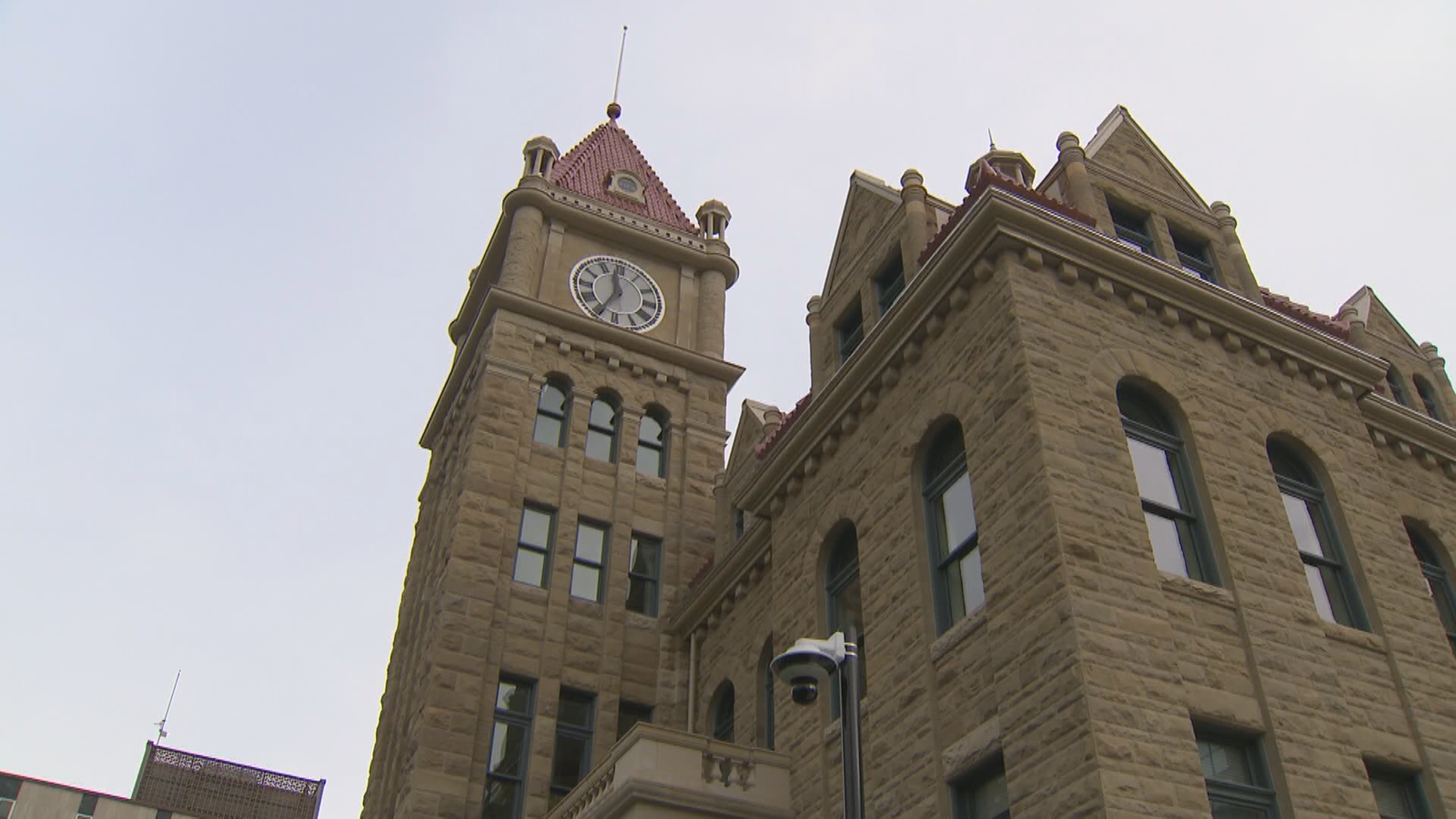Despite an announced 30-day pause on tariffs imposed by the United States, the City of Calgary is exploring potential impacts the levies and retaliatory measures could have on operations.
According to city administration, impacts related to price fluctuations, changes to product availability and potential supply chain delays are all anticipated if tariffs are imposed next month.
“We remain resilient and are prepared to address challenges that may arise from U.S. tariffs and any reciprocal tariffs that Canada may implement,” the city said in a statement to Global News. “We will continue to extend projections as more information becomes available.”
Calgary Mayor Jyoti Gondek, who is travelling to Ottawa on Wednesday to meet with Canada’s big city mayors on tariffs, told reporters Tuesday that the City of Calgary isn’t insulated to the tariff threats.
“It is possible that some of the chemicals we use to treat the water is supplied to us from the U.S.,” Gondek said. “There is an exhaustive list of things our administration is looking at so we can understand the full implications.”
According to the Calgary Construction Association (CCA), determining specific impacts is challenging due to the integration of supply chains on both sides of the border.
“It is so intensely integrated that it’s actually very difficult to identify specifics because they’re buried in the way we’ve operated for so long,” CCA president Bill Black told Global News. “For instance, aluminum leaves Canada, goes into the U.S., is processed into products such as glazing mullions and profiles and is then shipped back into Canada.”
David Cooper, principal at Leading Mobility, said municipalities could see impacts in purchasing specialized equipment like transit buses, as an example.
“There’s a highly-integrated supply chain there when you look at things such as hydraulic systems, or seats or technology, even the frame of the vehicle,” Cooper said. “There’s a lot of back and forth when it comes to manufacturing vehicles, but it really depends on where you are on overall procurement.”
The City of Calgary said has proactively taken measures to prepare for potential tariffs, but did not comment on what those actions are.
Trending Now
Should Canada ban X and Tesla? Why calls are growing
Donald Trump Jr. accused of killing rare, protected bird on trip to Italy
There are several ongoing projects within the city that are at various stages of procurement, including the Event Centre and Green Line LRT.
Although Black said he doesn’t anticipate impacts on the Scotia Place project with shovels already in the ground, he noted there is still time to prepare if tariffs are ultimately imposed.
“We have time, we have 30 days delay now, these projects are in planning,” Black said. “We have recommended that owners should exclude tariffs when they’re submitting pricing. The reality is industry will not take the tariff risk.”
Ward 7 Coun. Terry Wong said the city needs to rely on “good procurement management” to ensure costs on city projects and services remain within budget.
Wong said city administration is working with stakeholders around how the city procures materials, and the cost implications of tariffs.
“From a procurement perspective, perhaps we could look at procurement across Canada rather than going stateside,” Wong said.
The City of Calgary said it remains committed to “securing the best value for public funds,” but it remains unclear if the anticipated impacts will be felt if a resolution is found over the next 30 days.
© 2025 Global News, a division of Corus Entertainment Inc.


